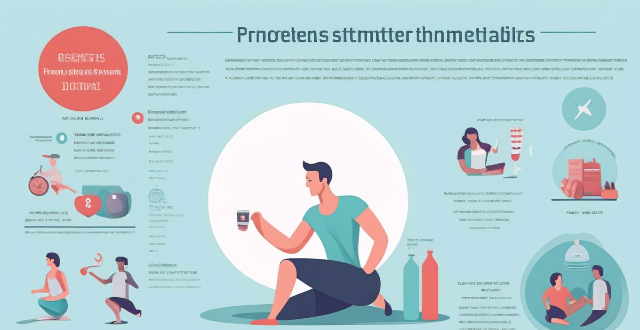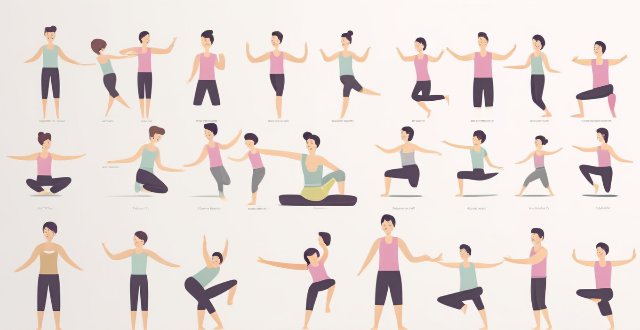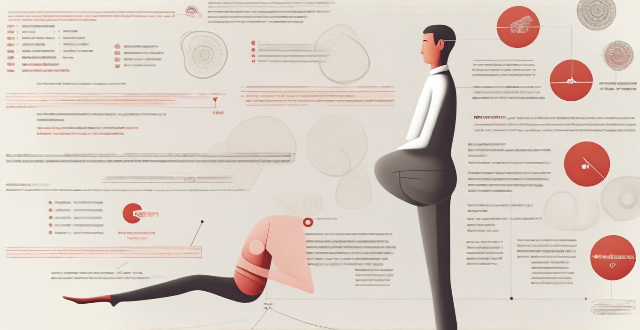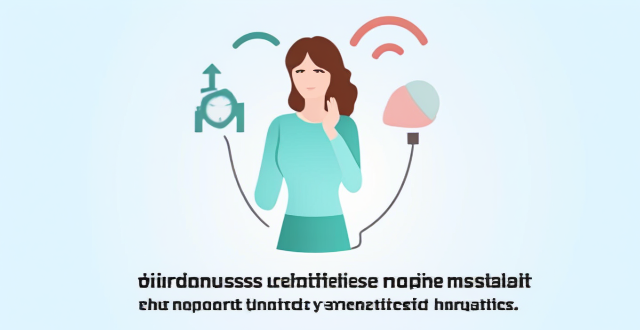Heart Stress

Are there any risks associated with constantly monitoring heart rate during exercise ?
Monitoring heart rate during exercise is common but can pose risks like over-reliance on technology, psychological impacts, and physical risks. It's important to find a balance between using heart rate data and listening to your body's signals for a safe and enjoyable workout.

Can exercise reverse heart disease ?
Heart disease is a major cause of death worldwide, and it can be devastating to those affected. While there are many treatments available for heart disease, including medication and surgery, some people wonder if exercise can reverse the damage caused by heart disease. There is evidence that regular exercise can help prevent and manage heart disease by improving cardiovascular health, managing weight, lowering blood pressure, improving cholesterol levels, and reducing stress. However, there is no conclusive evidence that exercise can completely reverse heart disease. Despite this, there are still many benefits to regular exercise for heart health. If you have been diagnosed with heart disease or are at high risk for developing it, talk to your doctor about starting an exercise program. They can help you create an exercise plan that is safe and effective for your individual needs and goals.

How does age affect heart rate during exercise ?
Age affects heart rate during exercise by altering the structure and function of the aging heart, reducing maximum heart rate, shifting autonomic regulation towards sympathetic dominance, and decreasing cardiac reserve. Older individuals can still improve their cardiovascular fitness through regular exercise and lifestyle modifications.

What role does sleep play in managing stress ?
Sleep is crucial in managing stress by regulating hormones, improving cognition, promoting emotional stability, offering physical health benefits, and enhancing quality of life. Prioritizing sleep is key for effective stress management.

How can I reduce stress in my daily life ?
The article provides several tips on how to reduce stress in daily life, including identifying the sources of stress, practicing mindfulness and meditation, exercising regularly, eating a healthy diet, getting enough sleep, and connecting with others. It emphasizes the importance of taking steps to manage stress and improve overall well-being.

Can heart rate monitoring help prevent overexertion during exercise ?
Overexertion during exercise can lead to fatigue, muscle soreness, and injuries. Heart rate monitoring is a technique used to measure the number of times a person's heart beats per minute (bpm). By monitoring your heart rate, you can determine personalized training zones based on age, fitness level, and goals, providing real-time feedback on current heart rate during exercise. Recovery time is essential for preventing overexertion, and heart rate monitoring helps determine how long it takes for the body to return to its resting state. Best practices for heart rate monitoring include choosing the right device, calibrating regularly, warming up properly, staying hydrated, and listening to your body. Following these guidelines and listening to your body can help prevent overexertion during exercise while maximizing its benefits.

Can exercise help with stress management ?
**Topic:** Can Exercise Help with Stress Management? **Summary:** * **Introduction:** The inevitability of stress and its potential impact on health highlight the importance of effective stress management. Exercise is often touted as a beneficial method for reducing stress. * **Relationship Between Exercise and Stress:** * **Physical Effects:** Exercise triggers endorphins, reduces cortisol levels, and improves sleep quality—all of which contribute to stress reduction. * **Mental Effects:** Enhanced cognitive function, increased self-esteem, and mindfulness techniques associated with exercise can aid in stress management. * **Benefits of Exercise for Stress Management:** * **Physical Benefits:** Improved cardiovascular health, weight management, and pain relief can reduce stress caused by related health issues. * **Mental Benefits:** Exercise can alleviate symptoms of anxiety and depression, improve mood, and increase resilience to stress. * **Practical Tips:** * **Setting Goals:** Start small and choose enjoyable activities to make exercise a sustainable habit. * **Consistency:** Scheduling workouts, finding an accountability partner, and tracking progress can help maintain a regular exercise routine. * **Conclusion:** Exercise is a powerful tool for managing stress, offering both physical and mental benefits. Incorporating it into one's lifestyle can significantly enhance overall well-being and resilience to life's challenges.

How does stress management affect women's well-being ?
Stress management plays a crucial role in women's well-being, affecting their physical, mental, and emotional health. By managing stress, women can improve their immunity, sleep quality, and reduce the risk of chronic diseases. It also helps in improving mood, concentration, and reducing anxiety and depression. Stress management can lead to improved relationships, self-esteem, and increased resilience. Overall, it is essential for women's well-being and can lead to a happier and healthier life.

Can regular physical activity help in reducing stress and anxiety ?
Regular physical activity can help reduce stress and anxiety by promoting the release of endorphins, improving sleep quality, and boosting self-esteem. Aerobic exercises like running, swimming, or cycling are particularly effective because they increase heart rate and circulation, leading to improved oxygenation of the brain. Yoga and tai chi focus on breathing and relaxation techniques that can also help reduce stress and anxiety. The American Heart Association recommends at least 150 minutes of moderate-intensity aerobic exercise or 75 minutes of vigorous-intensity aerobic exercise per week for adults. Finding an exercise routine that works for you and that you enjoy is key to sticking with it over time.

What are the best types of exercises for stress relief ?
The best types of exercises for stress relief include aerobic exercise, yoga, pilates, tai chi, and strength training. Aerobic exercise increases your heart rate and makes you sweat, which can help to reduce stress levels. Yoga helps to calm the mind and body, reducing stress and anxiety levels. Pilates focuses on strengthening the core muscles, improving posture and balance, and increasing flexibility. Tai Chi combines deep breathing with slow, flowing movements and has been shown to be effective in reducing stress levels. Finally, strength training involves using resistance bands or weights to build muscle strength and endurance.

How can stress management contribute to better personal health ?
Stress management is crucial for maintaining physical and mental health, as it can reduce the risk of chronic diseases, improve sleep quality, boost the immune system, reduce anxiety and depression symptoms, enhance cognitive function, and increase resilience. Incorporating stress management techniques into daily routines can lead to better overall well-being and a higher quality of life.

Are there any breathing techniques that can help reduce stress ?
Breathing techniques are a simple yet powerful tool for reducing stress levels and promoting relaxation. By practicing these techniques regularly, you can improve your overall well-being and reduce the negative effects of stress on your body and mind. Some effective breathing techniques for stress reduction include deep breathing, diaphragmatic breathing, alternate nostril breathing, and box breathing. These techniques help to increase oxygen flow to the brain, relax the body, balance the left and right hemispheres of the brain, and slow down the heart rate. Remember to focus on your breath and try to clear your mind of any distractions while practicing these techniques.

How does exercise influence cortisol levels, which are associated with stress ?
Exercise has a complex relationship with cortisol levels and stress management. Acute exercise can cause a temporary increase in cortisol levels, while chronic exercise can help regulate them over time. By managing stress through regular physical activity, individuals can maintain healthy cortisol levels and improve their overall well-being. Chronic stress and persistently high cortisol levels can contribute to a range of health problems, including weight gain, high blood pressure, impaired immune function, decreased bone density, increased risk of heart disease and stroke, and mood disorders such as anxiety and depression. Regular exercise can help manage stress and maintain healthy cortisol levels by improving mood and mental health, better sleep quality, and increased resilience to stress.

Can stress impact a woman's ability to conceive ?
The text discusses the potential impact of stress on a woman's ability to conceive, detailing how stress can lead to hormonal imbalances that affect menstrual cycles and ovulation, decreased sex drive, impaired egg quality, and difficulty maintaining pregnancy. It also provides coping strategies such as mind-body techniques, exercise, building a support system, and making lifestyle changes to manage stress levels and potentially improve fertility.

How much exercise do I need to do to manage my stress effectively ?
Managing stress through exercise is a crucial aspect of maintaining overall health and well-being. The ideal amount of exercise for stress management, as per the American Heart Association, is 150 minutes of moderate-intensity aerobic activity or 75 minutes of vigorous aerobic activity weekly, along with muscle-strengthening activities involving all major muscle groups at least twice a week. Different types of exercises such as aerobic exercises, strength training, flexibility exercises, and mind-body exercises can contribute to stress relief. When creating an exercise routine, it's important to start slow, choose enjoyable activities, mix up different types of exercises, set realistic goals, and make it a habit. Consistency is key in managing stress through exercise.

Does strength training have an impact on stress levels ?
Strength training can have a positive impact on stress levels through both physical and psychological benefits. It increases endorphin release, improves sleep quality, enhances self-esteem, provides distraction from stressors, fosters a sense of accomplishment, and promotes mindfulness. Consult with a healthcare professional before starting any new exercise regimen.

Is high-intensity interval training (HIIT) beneficial for reducing stress ?
The text discusses the potential benefits of High-Intensity Interval Training (HIIT) for stress reduction, including releasing endorphins, improving cardiovascular health, boosting self-confidence, enhancing focus and concentration, and providing a sense of accomplishment. It also provides tips for incorporating HIIT into a routine, such as starting slowly, choosing enjoyable activities, setting realistic goals, incorporating recovery time, and seeking professional guidance.

Can physical activity reduce the risk of heart disease ?
Regular physical activity can significantly reduce the risk of heart disease by improving blood circulation, strengthening heart muscles, and reducing major risk factors such as high blood pressure, high cholesterol, and diabetes. Recommended types of exercise include aerobic activities and strength training. Following guidelines from health organizations like the WHO can help maintain cardiovascular health.

How accurate are fitness trackers in monitoring heart rate ?
The accuracy of fitness trackers in monitoring heart rate can be affected by various factors, including device quality, skin type and color, movement, and environmental factors. To improve the accuracy of your fitness tracker's heart rate monitor, it is recommended to choose a reputable brand with advanced sensors and algorithms, wear your device correctly, calibrate your device, and use multiple sensors or a chest strap for better results. By following these tips, you can make more informed decisions about your health and fitness goals.

How often should I check my heart rate while exercising ?
Checking your heart rate is an important part of staying healthy and fit. However, how often you should check it depends on several factors, including your age, fitness level, and overall health. Here are some guidelines to help you determine the optimal frequency for checking your heart rate during exercise: For beginners: Check your heart rate every five minutes during the first few weeks of training to get a sense of your target heart rate range and adjust accordingly as you become more comfortable with the activity. For experienced athletes: Once or twice per workout is sufficient for experienced athletes who have established a good foundation in their fitness routine. This will allow them to focus more on their form and intensity without constantly worrying about their heart rate. For older adults or those with pre-existing health conditions: Older adults or those with pre-existing health conditions may need to monitor their heart rate more frequently than younger individuals. It's recommended that they check their heart rate at least once per workout and perhaps even before and after each session to stay safe and ensure they're not overexerting themselves.

In what ways can heart rate monitors improve athletic training ?
Heart rate monitors significantly enhance athletic training by enabling targeted intensity, objective data analysis, recovery monitoring, pacing strategies, and individualized training. To use them effectively, athletes should establish baseline measurements, set clear goals, create a structured plan, continuously monitor progress, and incorporate technology for easy tracking and insights.

What are the benefits of monitoring heart rate during exercise ?
Monitoring your heart rate during exercise offers numerous benefits, including improved workout efficiency, better recovery, reduced risk of injury, increased motivation, and improved cardiovascular health. By keeping an eye on your heart rate, you can ensure you're getting the most out of every workout while also taking care of your body.

Is yoga an effective method for stress relief ?
Yoga is a popular method for stress relief, offering physical, mental, and emotional benefits. Research supports its effectiveness, and incorporating yoga into your routine can significantly reduce stress levels. Consistency and personalization are key to experiencing its full benefits.

How does meditation help in reducing stress levels ?
Meditation is a practice that helps in reducing stress levels by calming the mind and body, improving concentration, promoting emotional health, increasing self-awareness, and enhancing mindfulness. It is a powerful tool for managing stress effectively and leading a happier, healthier life.

What is the best way to monitor heart rate during exercise ?
Monitoring heart rate during exercise is crucial for staying healthy and achieving fitness goals. The best way to monitor heart rate during exercise depends on personal preferences and fitness goals. Wearable heart rate monitors are convenient and non-invasive, while chest straps provide accurate data. Fingertip devices are affordable and easy to use, but less accurate than other methods. Smartphone apps are free or inexpensive, but may not work well in certain situations. Ultimately, the choice between these methods should be based on individual needs and preferences.

How does stress management contribute to sports health maintenance ?
Stress management is crucial for athletes' physical recovery, immune function, mental clarity, emotional well-being, consistency in performance, and competitive advantage. By managing stress effectively, athletes can improve their overall health and achieve success in their sport.

What is the ideal heart rate for different types of exercises ?
When it comes to exercise, knowing your ideal heartWhen it comes to exercise, knowing your ideal heartimizing the benefits of your knowing your ideal heart rate is crucial for maximizing the benefits of your workout while minimizing the risk of injury. The recommended heart rate ranges vary depending on the type of exercise and your fitness level. For aerobic exercise, beginners should aim for 50-60% of their maximum heart rate (MHR), intermediate exercisers 60-70% of MHR, and advanced exercisers 70-85% of MHR. High-intensity interval training (HIIT) requires higher intensity, with beginners aiming for 70-80% of MHR, intermediate exercisers 80-90% of MHR, and advanced exercisers 90-100% of MHR. Resistance training also varies by fitness level, with beginners aiming for 50-60% of MHR, intermediate exercisers 60-70% of MHR, and advanced exercisers 70-85% of MHR. Yoga and Pilates are low-impact exercises that focus on flexibility, balance, and core strength, with beginners aiming for 40-50% of MHR, intermediate exercisers 50-60% of MHR, and advanced exercisers 60-70% of MHR. By monitoring your heart rate and staying within the recommended ranges, you can ensure that you're exercising safely and effectively.

How can I use heart rate monitoring to improve my workout routine ?
Using a heart rate monitor can significantly improve your workout routine by providing valuable insights into your body's response to exercise. Here's how you can leverage heart rate monitoring to optimize your fitness regimen: - Understanding Heart Rate Zones: Your heart rate varies depending on the intensity of your workout. By understanding these heart rate zones, you can tailor your workouts to achieve specific goals, such as fat burning, endurance building, or performance improvement. - Setting Goals Based on Heart Rate: Establish clear objectives for each workout session based on your heart rate data, such as endurance training, weight loss, or performance enhancement. - Tracking Progress: Consistently monitor your heart rate during workouts to track progress, including recording resting heart rate and assessing recovery time. - Adjusting Intensity: Modify your workout intensity based on your heart rate feedback, such as increasing intensity if you're consistently below your target heart rate zone or decreasing intensity if you're above it. - Preventing Overtraining: Use heart rate data to avoid overtraining by staying within recommended heart rate limits and recognizing signs of overexertion. - Personalizing Your Workouts: Customize your routine with heart rate in mind by incorporating different training methods and experimenting with different activities to see which ones give you the desired heart rate response.

How does stress affect women's mental health ?
This text discusses the effects of stress on women's mental health, including anxiety and depression, sleep disturbances, emotional eating, low self-esteem, difficulty concentrating, irritability and mood swings, substance abuse, and physical health issues. It emphasizes the importance of self-care practices to manage stress effectively.